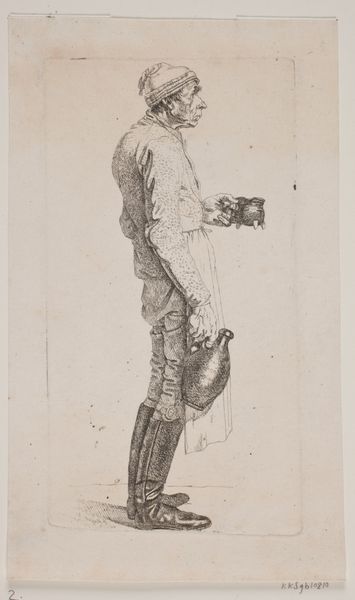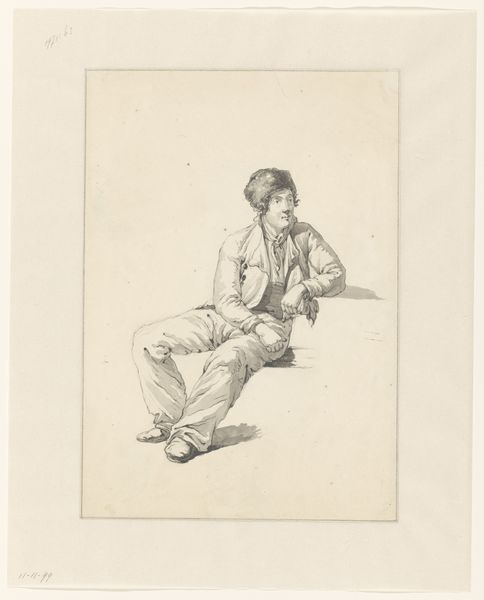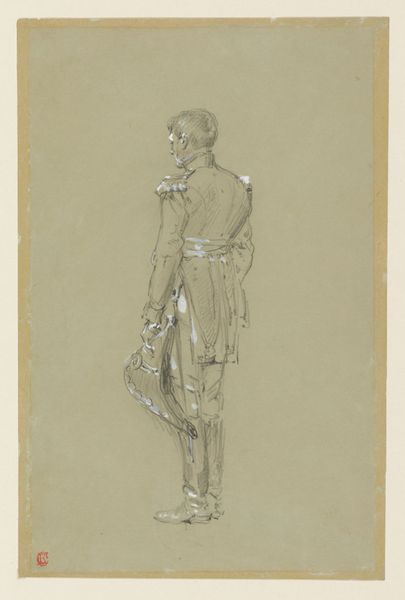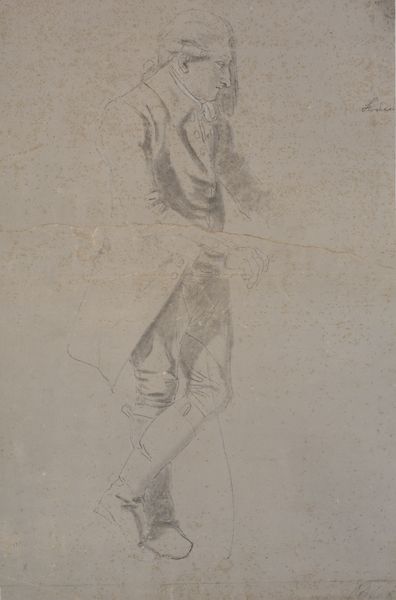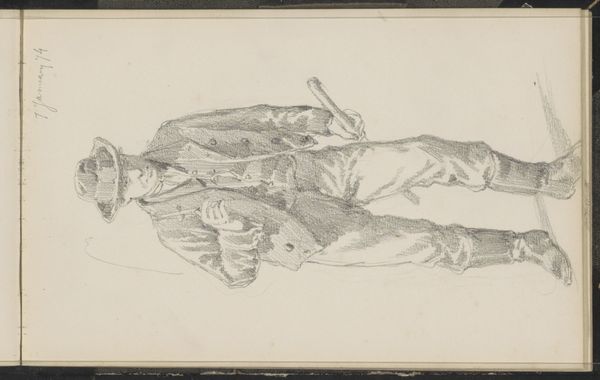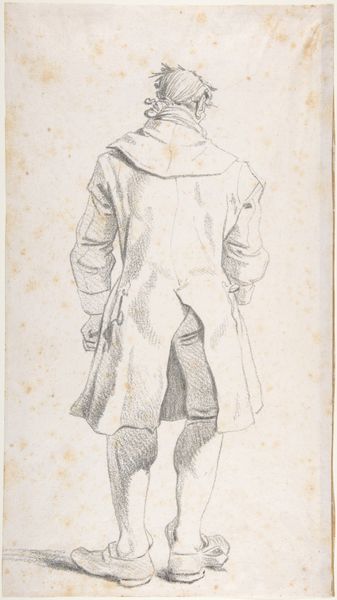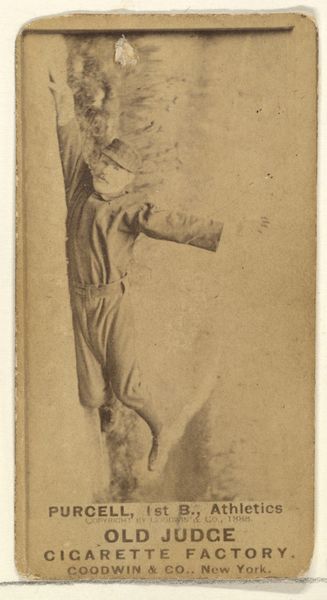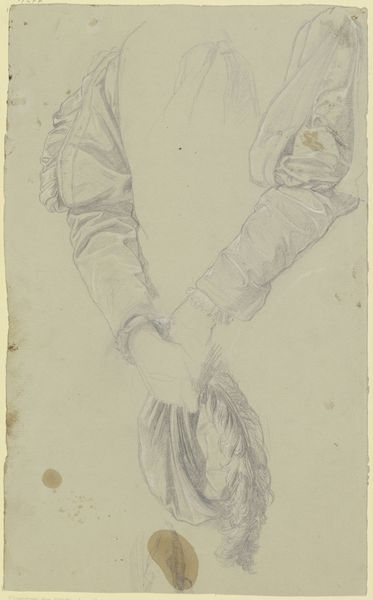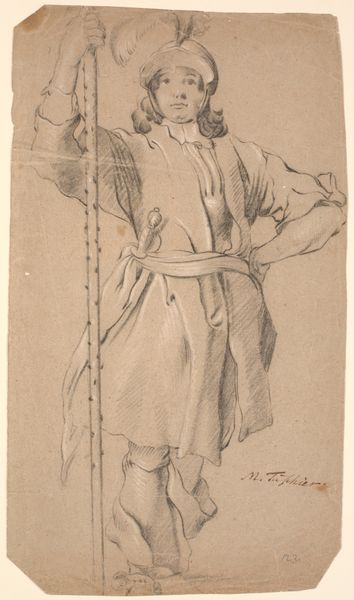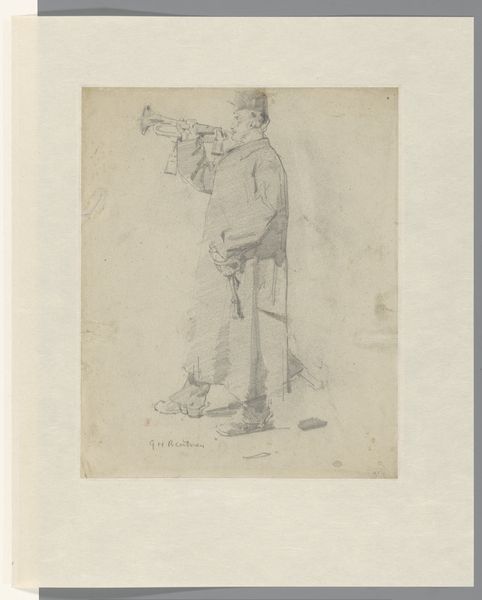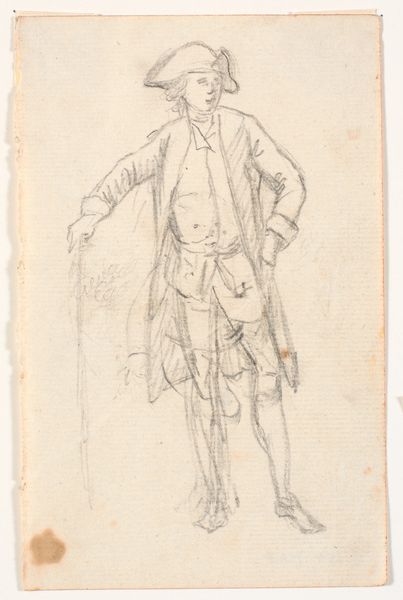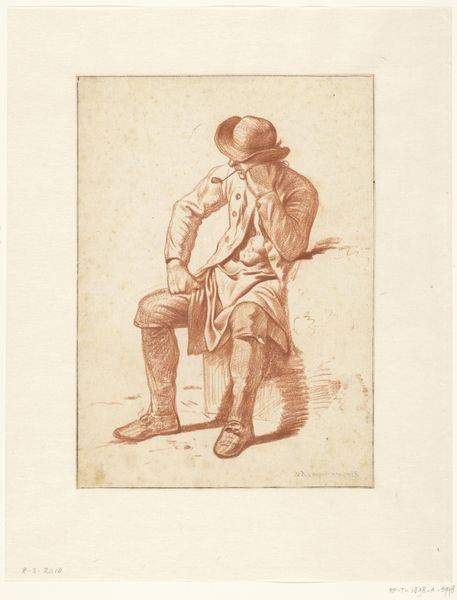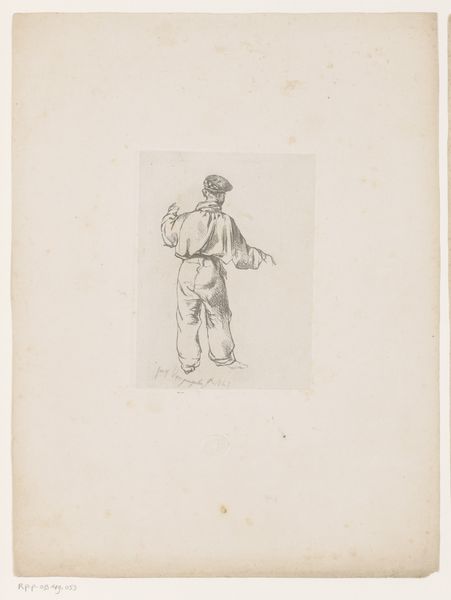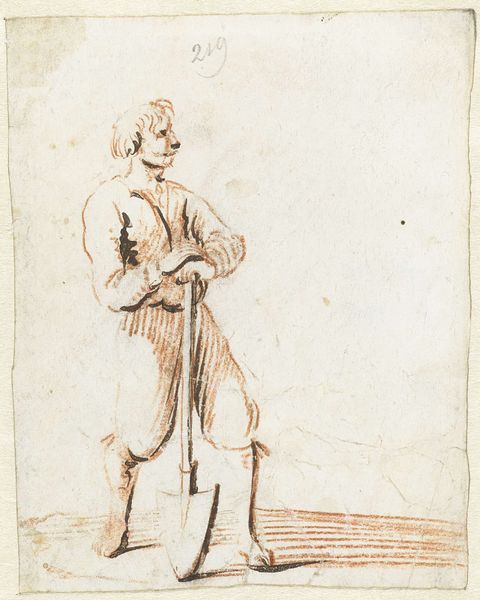
drawing, print, paper, ink, engraving
#
drawing
# print
#
paper
#
ink
#
romanticism
#
genre-painting
#
engraving
Dimensions: 150 mm (height) x 80 mm (width) (plademaal)
Editor: We're looking at "Mikel Glisner," an 1821 engraving by Ernst Meyer, housed in the SMK. It portrays a man, possibly a servant, standing in profile. The intricate line work and delicate shading gives it a really somber tone. What do you see in this piece? Curator: This seemingly simple genre painting opens up a dialogue about class and representation in early 19th century Denmark. Notice the man's worn attire: his patched clothes and sturdy boots speak to a life of labor. How might Meyer be engaging with contemporary ideas about the working class? Editor: Well, the Romantic period was very interested in the common man. Is this a Romantic celebration of the everyman? Curator: Perhaps. But consider, too, who is depicting this "everyman," and for whom? Meyer was part of a privileged artistic circle. How might his perspective shape the image and what values does it reflect or challenge? Editor: I guess it isn't straightforward to see this as pure celebration then. So, is the artist trying to engage with themes like inequality? Curator: That's precisely the tension that makes it so interesting. It hints at a more complex narrative about social standing, perhaps subtly critiquing the social hierarchy or attempting to give visibility to an overlooked figure. Who has the power to create images, and whose stories are told—and how? Editor: That's fascinating. It makes me rethink how seemingly simple portraits can reflect on a bigger societal issue. Curator: Exactly. It highlights the power dynamics embedded in the act of representation itself and shows us how class is a key identifier of this work and an important avenue for deeper contextual analysis. Editor: This really changed the way I think about artworks. Thanks!
Comments
No comments
Be the first to comment and join the conversation on the ultimate creative platform.
